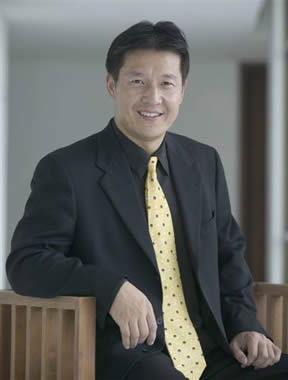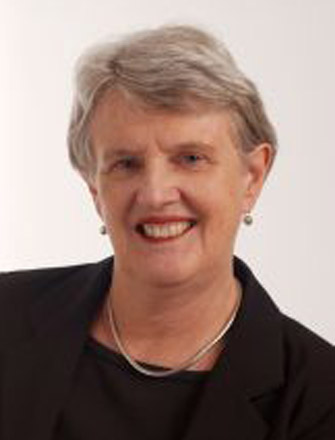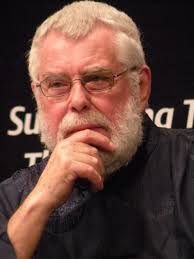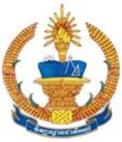2009 Conference
The 5th CamTESOL conference was held at the National Institute of Education (NIE). The conference was all day on Saturday 21 February and the morning only of Sunday 22 February.
The conference was opened by the Minister of Education, Youth and Sport (MoEYS), HE Im Sethy.
Registration for the conference totalled 1207, of whom 1174 registered for and attended on both days of the conference. Of total registrations, 770 were Cambodians. 278 participants came from foreign countries specifically for the event. There were 282 provincial teachers at the conference, 243 of whom were Government high school teachers sponsored by a range of donors, notably by the US State Department.
Additional activities included:
- A pre-conference workshop on Action Research
- Educational Site Visits
- Quality Assurance Forum
- An Orientation Program for teachers from the provinces
- A Presenters’ Warm Up function
- The Conference Dinner
The conference had a total of 218 presentations including papers, workshops and posters.
The 2009 conference had two plenary speakers. Professor Jun Liu from the University of Arizona (USA) delivered the opening plenary on the subject of “Complexities and Challenges in Training Non-native English Speaking Teachers: State-of-the-Art”. Professor Anne Burns from Macquarie University (Australia) delivered the closing plenary on the subject of “Grammar and Communicative Language Teaching - Why, When and How to Teach it?”
Plenary Speaker |
 | Professor Jun Liu Department of English
University of Arizona
USA | Sponsored by: 
|
“Complexities and Challenges in Training Non-native English Speaking Teachers:
State-of-the-Art" Non-native English Speaking Teachers (NNESTs) constitute the majority of the language teaching population in EFL settings. Methods and strategies that are usually considered efficient and effective for training Native English Speaking Teachers (NESTs) could be totally different for NNESTs. By drawing heavily from earlier work of Robert Phillipson (1992), Peter Medgyes (1994), George Braine (1999), and Liu (1999, 2001 and 2007) Professor Liu will review the state-of-the-art in this area of research, and discuss the challenges, difficulties, advantages and disadvantages of NNESTs, and how culturally sensitive training models can be uniquely developed catering to NNESTs in EFL contexts in general, and in China in particular. Professor Liu will also suggest ways that NNESTs and NESTs can mutually benefit from working together through collaboration. Jun Liu received his PhD from the Foreign and Second Language Education Program in the College of Education at OhioStateUniversity in 1996, after teaching English in China as a university language educator for over ten years. Dr Liu is Professor and Head in the Department of English at the University of Arizona. His research interests include curriculum and standards development and syllabus design, teacher education, classroom-based second language learning and teaching, and second language reading and writing. He has published in TESOL Quarterly, ELT Journal, Journal of English for Academic Purposes, Journal of Asian Pacific Communication, Asian Journal of English Language Teaching, Language and Intercultural Communication, and Educational Research Quarterly, among others. His recent publications include: Teaching English in China: New Perspectives, Approaches and Standards by Continuum Publishing (2007), Peer Response in Second Language Writing Classrooms (co-authored), by University of Michigan Press (2002), and Asian students’ classroom communication patterns in US universities by the Greenwood Publishing Group (2001). He is editor of the peer-refereed journal “Review of Applied Linguistics in China”, and also co-editor of the Michigan Series on Teaching Multilingual Writers. A recipient of the 1999 TESOL (Teachers of English to Speakers of Other Languages) Newbury House Award for Excellence in Teaching, and co-founder and Past Chair of Non-native English Speakers in TESOL Caucus (NNEST), he served on the TESOL Board of Directors serving as Director at Large (2001-2004), and was appointed as TESOL Representative in China in 2004. As the first Asian TESOL President (2006-2007) in TESOL’s 41-year history, Dr Liu has always been engaged in empowering Non-native English Speakers in the field of TESOL. |
Plenary Speaker |
 | Professor Anne Burns Professor of Linguistics
Macquarie University
Australia | Sponsored by: 
|
“Grammar and Communicative Language Teaching - Why, When and How to Teach it?” Do you teach grammar in your classroom and if so what approaches do you take to teaching grammar? What are your views about the place of grammar in your teaching program? Communicative language teaching has raised the issue of the role of grammar in English language teaching. Over the last two decades there have been different views of whether to teach grammar, what kind of grammar to teach, and how to teach it as part of a communicative syllabus. In this talk I will look at some of these different viewpoints and consider what different approaches to grammar have to offer the language teacher. I will also describe a recent study which looked at the beliefs of teachers across 18 countries about the effective integration of grammar into their teaching. The study included short case studies grammar of teaching in EFL and ESL classrooms which will also be highlighted. Anne Burns began her career in TESOL and Applied Linguistics working as an English teacher in France, Kenya and Mauritius, where she lived for five years. In the 1970s she set up her own primary and junior high school with another colleague in Mauritius. That school, AlexandraHouseSchool, still continues today. After she moved from the UK to Australia with her family in the early 1980s, she worked in the New South Wales Adult Migrant English Service, teaching newly arrived immigrants and refugees to Australia for eight years as a teacher, assistant principal and teacher educator. The NSW AMES is part of a national program, the Adult Migrant English Program (AMEP) funded by the Australian Government to assist new arrivals to learn English for settlement. In 1990 she joined the Department of Linguistics at MacquarieUniversity, Sydney, and worked in the National Centre for English Language Teaching and Research (NCELTR) as a Lecturer and Senior Lecturer. There, she coordinated the Professional Development and Research Section (1992-1998) and then became the Associate Director (1998-2003). At the same time she taught in the Department of Linguistics as a Senior Lecturer in the Applied Linguistics programs. Anne was appointed as Chair and Professor in the Department of Linguistics in 2003 and was the Dean of the Division of Linguistics and Psychology from 2000-2005. She has also held Adjunct Professor positions in the School of Educational Studies at La Trobe University (2000-2003) and in the School of English and Applied Linguistics at UNITEC, Auckland (2003-2005). She was appointed an Adjunct Professor at the Macquarie Graduate School of Management (MGSM) at Macquarie University in 2006. Some other recent appointments include Board Membership of the Extensive Reading Foundation, a non-profit organisation for the support and promotion of extensive reading. The ERF's annual Language Learner Literature Award is for the best works of language learner literature in English. In 2006 Anne was appointed a member of the TESOL Research Standing Committee. At present Anne continues to work in the Department of Applied Linguistics where she chairs the Applied Linguistics and Language in Education (ALLE) Research Group. |
Featured Speaker |
 | Mrs Gwyneth Fox Consultant and Lecturer
University of Aston
United Kingdom | Sponsored by: 
|
“Using Dictionaries to Enhance Vocabulary Skills” Dictionaries, particularly monolingual learners’ dictionaries, are full of up-to-date information about how language works. Unfortunately, many students – and even some teachers – do not realize what a valuable language resource they are and so do not use them as well as they might. Corpora have given us valuable insights into English, and many of these insights are found in learners’ dictionaries, where information about frequency, collocation, pragmatics, discourse and so on is explained. By using dictionaries well, students can improve their vocabulary, both by using better the most frequent words and also knowing when to use the more infrequent ones. In this talk I shall illustrate a number of simple activities designed to show students what they can find in their learners’ dictionary, and also how they can use the dictionary to help build up their vocabulary and improve their exam skills. Gwyneth Fox started her career as an EFL teacher in Rome. She returned to UK, where she lectured in Applied Linguistics at Birmingham Polytechnic, and ran teacher-training courses. She then returned to the classroom, and taught ESL at all levels in Birmingham schools, whilst continuing to train teachers. She was recruited to the Cobuild project at the University of Birmingham as a part-time researcher when it began in 1981. She continued to work with the project, taking over as Publishing Director in 1993, being responsible for all the dictionaries, grammars, and other EFL materials that were produced. During that time and since then she has travelled extensively, and has run courses, given seminars, and attended conferences around the world, giving plenary talks in Brazil, Spain, Poland, Mexico, UK and many other countries.
Gwyneth left Cobuild in 1997, and lectured in linguistics at the University of Birmingham. She is now a Visiting Fellow at the University of Aston. Until the end of 2007 she was also Dictionaries’ Publisher for Macmillan, and is now Consultant to the Dictionaries Publishing Team. |
Featured Speaker
|
 | Professor Alan Maley Visiting Professor and Freelance Writer
Leeds Metropolitan University
UK | |
“Global English? Implications for the Teacher” Debate about the role and status of English as an International Language (EIL) continues to rage. Proponents of ELF (English as a lingua franca) make claims about its viability as a model for the future. In this talk I shall question those claims. There are serious issues to do with the relevance of research for practical classroom teaching, of the nature of ELF encounters, and of the relationships between L1-users and L2-users. I shall suggest that the reality of EIL is far more complex than the proponents of ELF allow, and that we need to look in a different direction for future curriculam and materials design. Above all, we need to consider the implications of EIL for the teacher's own English and for what is taught in classrooms. Alan Maley has worked in ELT for over 40 years. He has lived and worked in 10 countries, including the People's Republic of China, India, Singapore and Thailand. He has published many articles, reviews and books in the field and is series editor for the Oxford Resource Books for Teachers. He now lives in the UK but travels widely, especially in Asia, his second home! |
Featured Speaker |
 | Mr Om Soryong Deputy Head of English Department
Institute of Foreign Languages
Royal University of Phnom Penh
Cambodia | |
“Using Humour: The Spice of Effective Teaching” “The students didn’t seem to be interested in my lesson at all.” Such a comment is often heard among teachers during their discussions after class. Most teachers who have taken a course in Teaching Methodology are probably still aware of one of the qualities of a good teacher, which is having a sense of humour. Although teaching and learning may be a serious business, that does not mean there is no room for fun during the learning process. In this regard, humour is a valuable teaching tool for creating an encouraging classroom atmosphere. This paper therefore identifies the importance of using humour, the opportunities for incorporating it in the classroom and suggests its appropriate use. Om Soryong is currently a Deputy Head of the English Department at the Institute of Foreign Languages (IFL), Royal University of Phnom Penh (RUPP). He holds a Master's Degree of Science in Instructional Design from Southern Illinois University, USA, and a Graduate Diploma in TESOL from the University of Canberra, Australia. He has been involved in curriculum/syllabus design and development and teaching English as a foreign language in the Bachelor of Education in TEFL and Bachelor of Arts in English courses at the Institute of Foreign Languages for more than ten years. His areas of expertise include teaching methodology, translation, curriculum development, and instructional design. He has a special interest in learner motivation and the use of humour in the classroom. He is also a member of the CamTESOL Steering Committee and was Editor-in-Chief of the publication arising from the first CamTESOL conference: CamTESOL Selected Papers (2005). |
The CamTESOL Secretariat gratefully acknowledges the support of the following sponsors and exhibitors to the
6th Annual CamTESOL Conference on English Language Teaching:
| Conference Partners |

| 
| 
|
Research Partner
Financial support for two research grants | Opening Plenary Speaker
(Professor Jun Liu)
| Conference Venue (National Institute of Education)
|

|
|

|
Sponsorship of 'QA in ELT' Stream | | Hospitality Partner
Partial financial assistance for the Presenters Warm-up Cocktail Party |
| Sponsors of Cambodian Provincial Teachers |
Outstanding Sponsors of Cambodian Teachers: |
 |  |
| 120 Provincial Teachers/Teacher Trainers | 50 Provincial Teachers
|
Silver Sponsors
|
Ms Cara Phillips
Prof Gary Scott Fine
Institute of Continuing & TESOL Education (ICTE) at University of Queensland
OMC
Ly Vanna Corporation
Registration of 5 provincial teachers |
Bronze Sponsors
Registration of 3 provincial teachers
|
| Prof | Beverley | Elsom Lafaye |
| Mrs | Cherie | Brown |
| Mr | Craig | Snell (4 teachers) |
| | Department of | Defence, Australian Embassy, Phnom Penh |
| | Im | Savorn Photocopy Shop |
| Ms | Judy | Cooke |
| Ms | Marion | Bagot |
| Mr | Mark | Thomas |
| Prof | Peter | J Collins |
| Dr | Shaun | O'Dwyer |
| Prof | Te | Mana Potaka-Dewes |
| Mr | Thomas | Kerner |
| Prof | Tim | Newfields |
| Mr | Vincent | Tran |
Individual Sponsors
| | Angkor Thom | Book Center (2 teachers) |
| Dr | Agustin | Rebecca Lakawa |
| Mr | Andy | Boon |
| Ms | Brenna | Cheers |
| Prof | Carl | Adams |
| Miss | Caroline | Lloyd |
| Ms | Claudia | Keh |
| Mr | Colin | Skeates |
| Mr | David | Leslie Patterson |
| Mr | David | Quartermain |
| Prof | Dwayne | Cover |
| Dr | Elizabeth | Walter-Echols |
| Mrs | Emi | Sugita |
| Ms | Emmaline | Lear |
| Ms | Eucharia | Donnery |
| Ms | Jenny | Osborne |
| Mr | John | Scacco |
| Prof | Joyce | Maeda |
| Ms | Julie | Hanks |
| Ms | Julie | Wilson |
| Prof | Jurgen | Bulach |
| Mr | Kamran | Ahmed Durrani |
| Dr | Kathy | Ewing |
| Ms | Lisa | O'Brien |
| Ms | Madelize | Bekker |
| Dr | Maggie | MacDonald |
| Prof | Margaret | Kim |
| Dr | Mark | Sawyer |
| Mrs | Michelle | Rickaby |
| Ms | Michelle | Schaner |
| Mr | Peter | McLaren |
| Dr | Penny | McKay |
| Mr | Philip | Chaddock |
| Mr | Richard | Seow |
| Prof | Rosemary | Orlando |
| Prof | Ross | Miller |
| Ms | Sarah | Stevenson |
| Prof | Shigeo | Uematsu |
| Mr | Stephen | Turner |
| Prof | Susan | Barfield |
| Ms | Susanne | Rizzo |
| Ms | Ursula | Wall |
| Dr | Wayne | Wright |
| Mr | William | Dietz |
Other Sponsors
Australian Education International provided financial assistance for the 4 recipients of the Regional Innovation Awards.
IDP:IELTS Australia provided financial assistance for 3 presenters from Iran to attend CamTESOL 2009.
Institute of Continuing & TESOL Education (ICTE) at the University of Queensland provided financial assistance for 6 presenters from Vietnam to attend CamTESOL 2009.
| Exhibitors |
CambridgeUniversity Press CamTEFL CamTESOL Editorial Board IDP Education IELTS Institute of Continuing & TESOL Education (ICTE) at the University of Queensland Language Corps – Asia Long Learning Co Ltd Macmillan Education McGraw-Hill International Enterprises, Inc Monument Books Oxford University Press |
For sponsorship and exhibitor opportunities at CamTESOL 2010, keep checking
the CamTESOL website www.camtesol.org